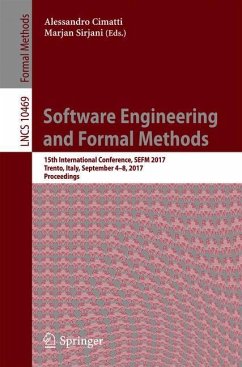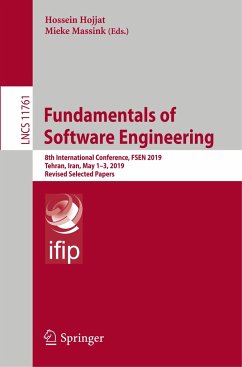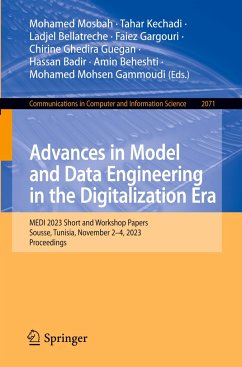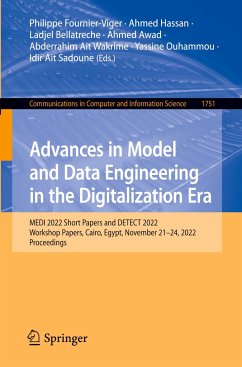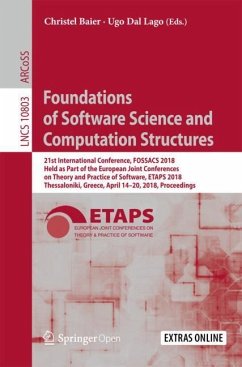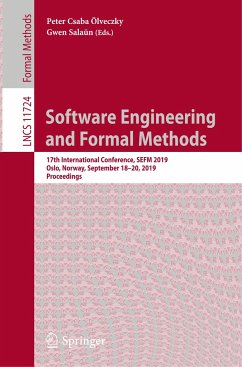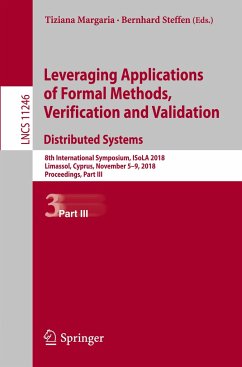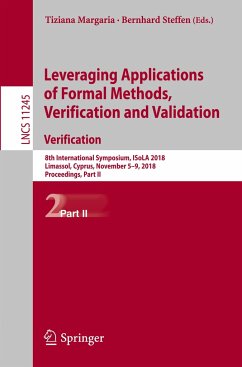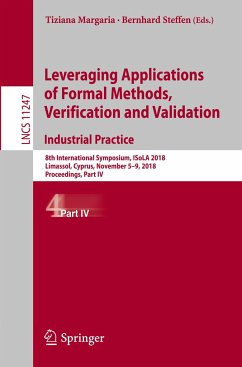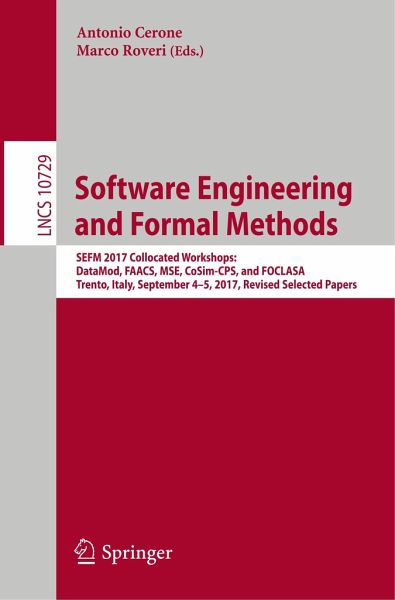
Software Engineering and Formal Methods
SEFM 2017 Collocated Workshops: DataMod, FAACS, MSE, CoSim-CPS, and FOCLASA, Trento, Italy, September 4-5, 2017, Revised Selected Papers
Herausgegeben: Cerone, Antonio; Roveri, Marco

PAYBACK Punkte
28 °P sammeln!
This book constitutes revised selected papers from the five workshops collocated with the 15th International Conference on Software Engineering and Formal Methods, SEFM 2017.The 38 papers presented in this volume were carefully reviewed and selected from a total of 55 submissions. They stem from the following workshops:DataMod 2017 -- 6th International Symposium "From Data to Models and Back"; FAACS 2017 -- 1st Workshop on Formal Approaches for Advanced Computing Systems; MSE 2017 -- 1st Workshop on Microservices: Science and Engineering; CoSim-CPS 2017 -- 1st Workshop on Formal Co-Simulation ...
This book constitutes revised selected papers from the five workshops collocated with the 15th International Conference on Software Engineering and Formal Methods, SEFM 2017.
The 38 papers presented in this volume were carefully reviewed and selected from a total of 55 submissions. They stem from the following workshops:
DataMod 2017 -- 6th International Symposium "From Data to Models and Back"; FAACS 2017 -- 1st Workshop on Formal Approaches for Advanced Computing Systems; MSE 2017 -- 1st Workshop on Microservices: Science and Engineering; CoSim-CPS 2017 -- 1st Workshop on Formal Co-Simulation of Cyber-Physical Systems; FOCLASA 2017 -- 15th International Workshop on Foundations Of Coordination Languages and Self-Adaptive Systems .
The 38 papers presented in this volume were carefully reviewed and selected from a total of 55 submissions. They stem from the following workshops:
DataMod 2017 -- 6th International Symposium "From Data to Models and Back"; FAACS 2017 -- 1st Workshop on Formal Approaches for Advanced Computing Systems; MSE 2017 -- 1st Workshop on Microservices: Science and Engineering; CoSim-CPS 2017 -- 1st Workshop on Formal Co-Simulation of Cyber-Physical Systems; FOCLASA 2017 -- 15th International Workshop on Foundations Of Coordination Languages and Self-Adaptive Systems .



